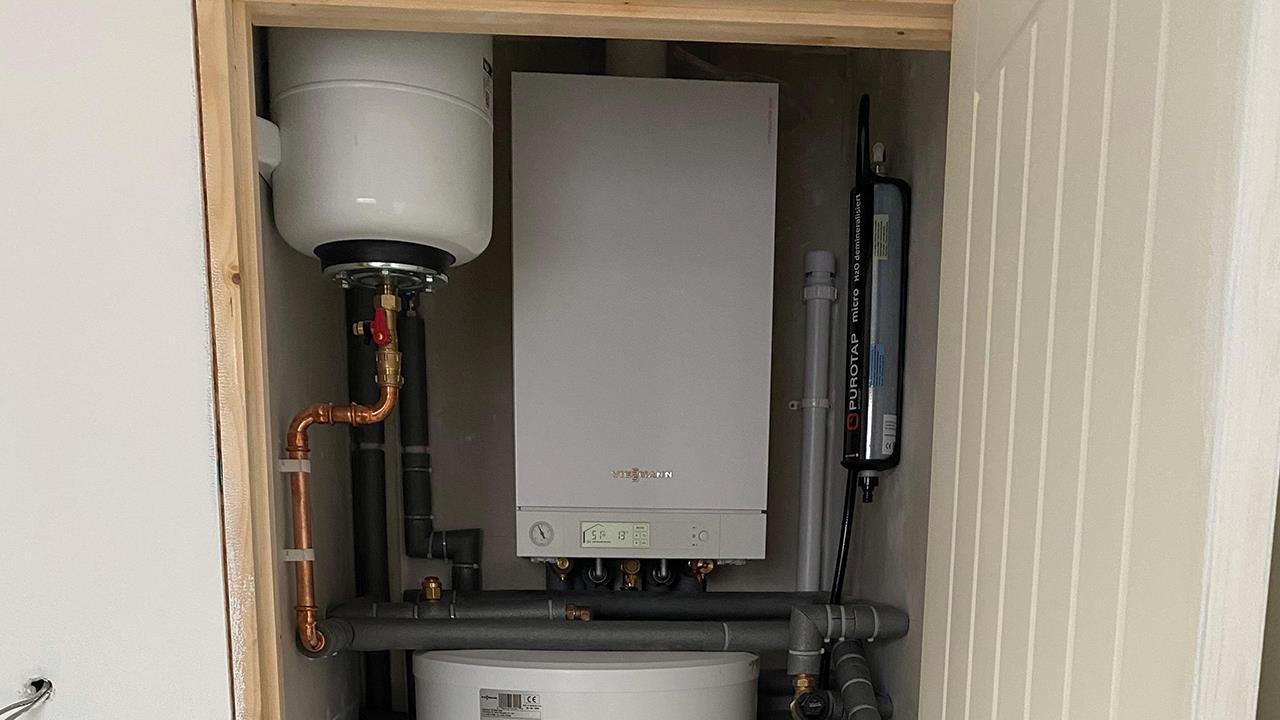

I have been using electrochemistry and the principles of VDI 2035 for the last 10 years. My journey to this standard started when I was encountering a lot of issues with corrosion in sealed systems, despite them being dosed with inhibitors. This caused me and another installer to look to Germany since we were aware they had higher levels of regulations than the UK on water quality. This is where we first discovered VDI 2035 and the non-additive approach to chemical water treatment.
VDI stands for ‘Verein Deutscher Ingenieure’, which translates to ‘Association of German Engineers’. VDI 2035 is the series of guidelines set by the association for the control of water quality for heating water. The UK equivalent would be BS 7593:2019, but VDI 2035 is far more exhaustive and scientific than the brief coverage to the subject given by BS 7593.
There are also similar requirements in Austria, ÖNORM H 5195-1, and in Switzerland, SWKI BT 102-01, but what is common in all these standards is they all promote a chemical-free methodology.
As an installer, I have been able to take more confidence in my installs since adopting the VDI 2035 principles nearly a decade ago. Heating system water is taken for granted, but the quality of the water is essential.
If your system water is poor, or if there is a lot of oxygen ingress, corrosion issues will cause the component parts to fail. This causes additional expense for the consumer, while risking damage to your own reputation and your relationship with the client.
In accordance with the standards, we use high quality resin cartridges that lower the conductivity of the water and set the pH to around 8.2.
This water, in my professional opinion, is much better suited to a heating system. Having water with low conductivity takes away the path for the chemical reaction of corrosion to occur so, even in the presence of oxygen, corrosion is restricted. pH-related corrosion is also largely ignored by installers and is another reason for system corrosion. The fill cartridges we use set the pH to recommended levels as specified by VDI, therefore greatly reducing the possibility of pH-related corrosion.
With heat pumps becoming more widely used, it is even more important to ensure the water is of the highest quality. The cost of these components means it’s even more essential that, as installers, we do all we can to reduce the risk of system failure from corrosion. Filling a system with chemical-free conditioned water is, in my opinion, the best way to achieve this.
We also have the option to use electrochemistry units to further protect the system water. These maintain the pH and low conductivity of the water as they remove and further protect against limescale deposits and sludge. They also function as a micro gas separator by removing the oxygen and gases from the circulating water with the use of sacrificial magnesium anodes.
To protect the system water at all times, we use Elysator’s SorbOx to deliver the levels set out in VDI 2035 as shown in the table below:
| Element | VDI 2035 Levels | BSRIA BG29 Levels |
|---|---|---|
| Hydrogen pH | 8.2-10 | * |
| Chloride mg/l (cl) | 10 | * |
| Copper mg/l (cu) | 0.02 | Less than 1 or * |
| Iron mg/l (fe) | 0.1 | Less than 3 |
| Dissolved oxygen | 0.1 | Less than 2 |
| Total hardness mg/l | 10-200 | * |
| Conductivity uS/cm | 50-100 | * |
For low temperature systems especially, high quality water is essential for optimum performance and heat transfer. Electrochemistry ensures water is constantly de-energised, ensuring optimal heat transfer.
In addition, the units have magnetic flow filters for the circulating water that remove debris and other corrosion particles and further help to maintain pH levels. These units keep the water in tip-top condition and are always installed as standard with all our heat pump projects.
It’s also important for future top up water to be treated so as not to undo all the preventative measures enacted by filling the system with conditioned water.
For domestic properties, we use Purotap Micros which are relatively cheap, small, wall-hung cartridges that can be connected to the quick fill hose. The mains water passes through the cartridge, conditioning the water to ensure the system water is of the same quality. These cartridges are simple to fit and well worth the low additional cost to ensure ongoing system protection.
The benefit for homeowners is in giving them a corrosion-free heating system. Corrosion is often the cause for breakdown of components such as boilers and heat pumps and, once the benefits are explained, the homeowner is often only too happy for them to be installed.
There is no reason for corrosion to occur and, as installers, we need to be more conscious of the importance of the water in heating systems. We often place too much focus on the boiler when, in fact, the quality of the water in the system should always be a priority.
If you'd like to keep up-to-date with the latest developments in the heating and plumbing industry, why not subscribe to our weekly newsletters? Just click the button below and you can ensure all the latest industry news and new product information lands in your inbox every week.